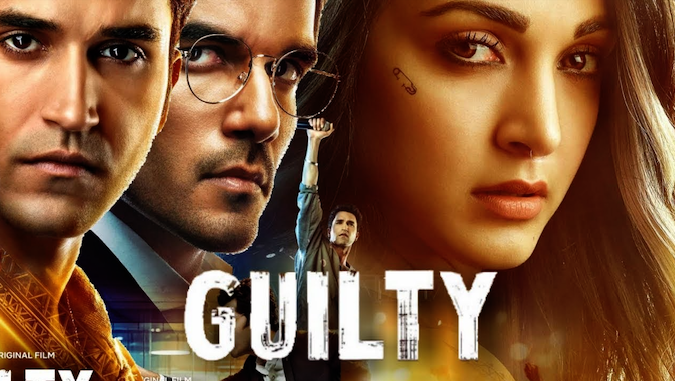A Journey of Intimacy with Irrfan
Aritro Sarkar, Undergraduate ’21 If acting had subalternity, Irrfan Khan would probably be its biggest contemporary

By Isa Ayidh, Undergraduate Batch of 2022
True to its title, Dharmatic’s – the digital arm of Karan Johar’s Dharma Productions – first production makes the viewer guilty of their conditioning.
Guilty, an addition to India’s scarce #MeToo narratives, attempts to tackle rape culture in a college St Martins situated in Delhi, the rape capital. The movie begins with an ample dose of slut-shaming the victim – Tanu Kumar (played by Akansha Ranjan Kapoor) – by the accused Vijay “VJ” Pratap Singh’s (Gurfateh Singh Pirzada) friend. A non-linear narrative, Guilty‘s protagonists are VJ’s girlfriend, Nanki Dutta (Kiara Advani) a punk-rock song-writer murmuring Virginia Woolf with a joint in hand, and his lawyer, Danish Ali Baig (Taher Shabbir).
Advani’s character resonates with the dilemma of a rape victim, a woman and a girlfriend, as she finds herself stranded between her trust in her boyfriend and the rape accusation on him. The form of this accusation, a tweet, sets a stage for the ‘he said, she said’ mode of conversation. Privilege clothes the discussion, and sex, class, and region, accessorize it.

Writers Atika Chohan, Kanika Dhillon, Ruchi Narain – also the director – do not chart Tanu as the primary point of view. Instead, the viewers wear Nanki’s boots and watch Tanu as an attention-seeking woman, who speaks lewdly, dresses to ‘ask for it’ – a shameless wannabe who wants to steal her man. Tanu Kumar isn’t a survivor who hides behind a pallu. Instead, she will tweet, hold a rally, answer back, continue to dress the way she does and slap her rapist.
In the first half of the movie, the viewer believes that Tanu is exactly what VJ and his friends claim her to be – a slut – on a Gone Girl mission. However, Nanki’s idea of Tanu falls apart quickly, and she, like Danish, raises the deceptively simple question: Is VJ lying? Was it consensual?
Narain plays with the digital platform, ensures to shred Johar’s usual SOTY-style college narrative, situating DU within the tangents of sexuality, drugs and classism, and borrows the sequential style of American TV shows like 13 Reasons Why and Riverdale. The movie, however, skims through its portrayal of rape culture. Although it touches the nuances of the problem at hand – unsolicited masturbation, harassment and cat-calling – Guilty fails to prompt one to seek the truth.
Advani’s monologue, which features one of the most spectacular lines of the movie: “I’m ready to speak up now, but is anyone ready to listen?”, does not bridge with her character. The sloppy portrayal of her mental health suggests that it plays the role of spackle to fix a possible plot hole. Furthermore, Danish’s consistent belief that his client is guilty appears to have no precedence and makes his character unrealistic.
Although Guilty does not grasp the reality of the #MeToo movement, it raises one important question why Tanu’s clothes determine whether she’s a victim or not. The end of the movie leaves one unnerved about their perception and asks if they are a guilty participant of rape culture.